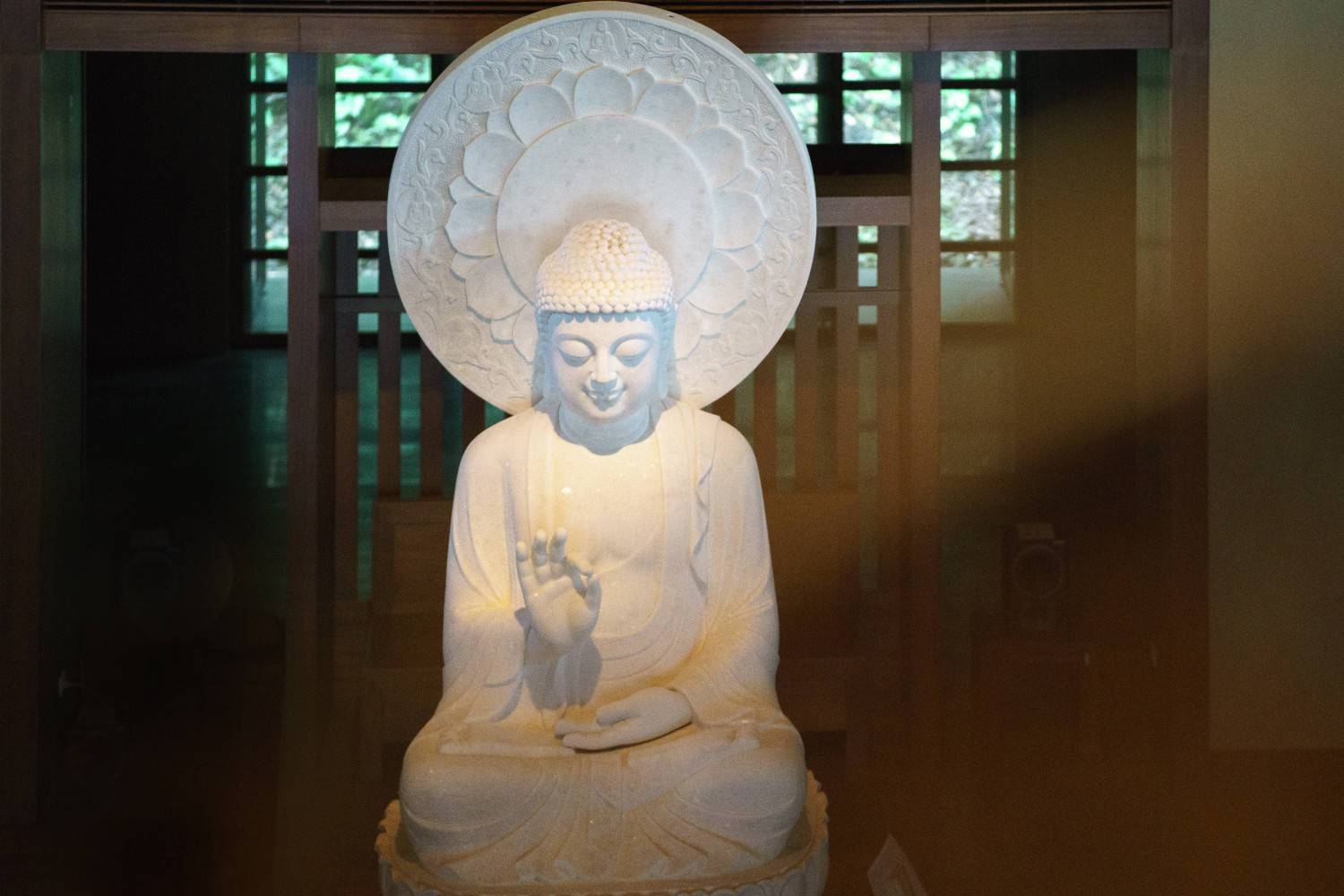News

April 07, 2020
[Topics] The Five Precepts
SHI-FU:
The five precepts are part of the Buddhist tradition and they are: no killing, no stealign, no sexual misconduct, no lying, and no alcohol or drugs. The five precepts are a protecting mechanism for practitioners. They help to ensure the purity of their lives and minds so that they can safely and steadily continue to practice. For this reason, precepts are necessary.
The five precepts are part of the Buddhist tradition and they are: no killing, no stealign, no sexual misconduct, no lying, and no alcohol or drugs. The five precepts are a protecting mechanism for practitioners. They help to ensure the purity of their lives and minds so that they can safely and steadily continue to practice. For this reason, precepts are necessary.
In taking the precepts, you check yourself in regard to actions and speech. If your body karma and verbal karma are relatively undefiled, then your mind will tend to be more stable and pure. A stable mind leads to better practice, which in turn can lead to samadhi. Thus, the attainment of samadhi is dependent on the practice of the precepts.
Taking the precepts must be voluntary. You must be willing to curb your actions and speech. If you are forced to do so, then the precepts will only create frustration and anger; they will not help you in attaining samadhi, or even in your daily life.
It is not only for attaining samadhi that you should take the five precepts; it also signifies that you want to accept the teachings of the Buddha. In addition to taking the refuges, they are the basic requirement for being a Buddhist. When you follow these precepts, your behavior will be different from the ordinary person's. Either people will recognize that your actions and speech are different because you are a Buddhist, or, conversely, they will surmise that you are a Buddhist by your actions and speech. At this point, whether you practice to attain samadhi is another issue. Even if you do not meditate, but wish only to be a basic Buddhist, you should take the five precepts.
Taking the precepts must be voluntary. You must be willing to curb your actions and speech. If you are forced to do so, then the precepts will only create frustration and anger; they will not help you in attaining samadhi, or even in your daily life.
It is not only for attaining samadhi that you should take the five precepts; it also signifies that you want to accept the teachings of the Buddha. In addition to taking the refuges, they are the basic requirement for being a Buddhist. When you follow these precepts, your behavior will be different from the ordinary person's. Either people will recognize that your actions and speech are different because you are a Buddhist, or, conversely, they will surmise that you are a Buddhist by your actions and speech. At this point, whether you practice to attain samadhi is another issue. Even if you do not meditate, but wish only to be a basic Buddhist, you should take the five precepts.
Do people's attitudes concerning the five precepts change as they journey deeper into practice? Yes, definitely. The precepts can be viewed from three levels. The first is the "individual liberation precept." It is the level of the ordinary practitioner. Here the precepts are held one by one, from one period of time to the next. Each precept is taken and followed separately. If you are sincere in keeping a particular precept, then you will acquire the benefits of that precept. It does not mean that you will, or can, hold all five precepts simultaneously.
The second level is the "precept that is in conjunction with samadhi." When people move sufficiently deeply into samadhi, they will no longer have any desire to break any of the precepts, and will naturally refrain from breaking them. If people claim to have attained deep samadhi, yet break the precepts, then the samadhi they speak of is not genuine.
The third level is the "precept that is in conjunction with wisdom." From the time people first see their true nature to the time they achieve Buddhahood, their wisdom will progressively deepen. During this time, they will not have to remind themselves to keep the precepts. At this point precepts are a natural part of the practice.
The third level is the "precept that is in conjunction with wisdom." From the time people first see their true nature to the time they achieve Buddhahood, their wisdom will progressively deepen. During this time, they will not have to remind themselves to keep the precepts. At this point precepts are a natural part of the practice.
Resources
Zen Wisdom, The Five Precepts , p.101
Bookstore
